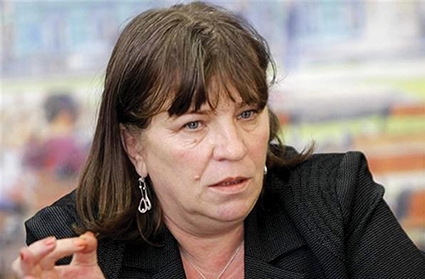Nicolai on Georgia, Europe & Visa Liberalization
INTERVIEW
The visa liberalization decision taken a week ago in Brussels was indeed a historic moment for Georgia, long awaited by Georgians, and if the bulk of those waiting Georgians are to be believed, a long overdue one. Although the decision was approved by a large majority, skeptics were pointing at the possible risks and dangers. Therefore, we thought it worthwhile to analyze the arguments from naysayers, and to draw some conclusions on how to proceed for the mutual interests of Georgia and the EU.
The very first guest of Panorama TV’s brand-new feature, Talks from Brussels, was Ms. Norica Nicolai, Vice-Chair of ALDE Group, The Alliance of Liberals and Democrats for Europe, and a Vice-President of the EU-Georgia Friendship Group in the European Parliament. GEORGIA TODAY presents you the print version of the interview.
There were two different portrayals of Europe in the speeches heard at the European Parliament - one of closed doors and another of open. Which is the real Europe?
These speeches are borne of months and years of fighting. We started this fight a few years ago, and it’s a first step for Georgia’s real European integration. Georgia, for me, is a European country, no matter if it is in the Caucasus. And if the population of this European country isn’t allowed to travel freely to other countries, this keeps this population in what I’d call a modern Gulag. The EU should remain an open territory with the privilege of freedom of movement. But Europe changes quickly, by the year. And this time, Europe is in crisis – economic, politic, social, you name it. And the migration period we just had I believe influenced many of those speeches. The [European] politicians have become less open, less tolerant. They think and behave not as one space, but rather in terms of second value, which I call national interests. It’s a turbulent period for us and that’s the reason we heard so many different speeches. But anyway, the vote in favor was huge and that was a statement of our support towards Georgia.
There have been some concerns that the Council might delay the final approval because of the upcoming elections in France and Germany. What is your feeling on that?
I know that there are some countries which aren’t very pleased with this visa liberalization, especially Germany, which sometimes tries to have an agenda different to that of the EU, an agenda based on national interests, not on the interests of the EU. I can understand Madame Merkel. She has elections this year and it’s not decided whether she’ll remain [in power]. But I believe that this will not {result in] postponing the liberalization decision.
What would you tell those who voted against, citing fears of “corruption, organized crime, terrorism”? Georgia has the best indication in Eastern Europe in the Corruption Perception Index 2016- even better than your own country – Romania. Are we dealing with double standards?
Corruption doesn’t happen overnight – it’s a matter of tradition, of history, cultural approach, how strong or weak the state is… For the benefit of the EU, these kinds of things should disappear, but I can say neither Georgia nor Romania face such a phenomenon of corruption, so it is a double standard.
“A periphery, serving as merely a road to Europe” and “sharing a border with Turkey” were some of the most scathing remarks that came from those who voted no. What do you think of these arguments?
It’s a totalitarian approach. They talk about peripheries, including Romania and Bulgaria, and they consider Georgia, which is farther away than us, a periphery, too. This is arrogant. It’s nothing but hate speech. But remember that people who give such speeches are people of and for a moment: they aren’t people for history. Ignore it – you have a way ahead. Georgia is a great country. If you are confident in the future of your country, these people are marginal; they don’t matter.
What can you tell us of the Romanian-Moldovan experience so far? What lessons for Georgia? What precautions?
I believe that now you have a stable political leadership, the main issue now is how to set up an institution dealing with this, how not to turn this institution into political, party-based leverage.
Any talk about Georgia’s European aspirations would be incomplete without mentioning its northern neighbor which is so unwilling to see these aspirations materialize. How should Georgians deal with Russia? And what stance should the EU take?
Unfortunately, we often have to pay because of geography. Historically, Georgia is where it is and it’s always been a problem. It’s a neighbor and although we must privilege good relationships with neighbors, Russia has yet to understand that neighborhood doesn’t mean domination. Friendship and collaboration, economical included, must be to the benefit of both parties. Georgia can’t ignore Russia and I believe it explains why Georgia isn’t in NATO yet. But Russia can’t put a stop to the aspirations and that’s crucial.
What is the next step for Georgia towards its European aspirations? WHAT ARE THE NEXT BENCHMARKS Georgia would have to fulfill to get closer to Europe and what closure would that bring?
The next steps would be to consolidate the economy, be a competitive economy, strengthen political institutions, better education for people – and that’s it. Keep doing this and we’ll be expecting Georgia in the European Union, as soon as possible!
Teona Lavrelashvili and Vazha Tavberidze












